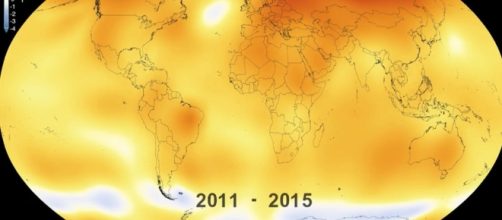On Sunday, the DailyMail claimed that it has evidence that the world's most respected source of climate data, the National Oceanic and Atmospheric Administration, hastily and knowingly published a flawed paper that exaggerated Global warming with the sole purpose of influencing the Paris Agreement on climate change.
According to the DailyMail, a whistleblower within the NOAA claims the administration violated its own rules on scientific integrity by publishing a flawed report, knowing that the report would create a panic among world leaders at the UN conference on climate change in Paris in 2015.
Phony climate report was touted by politicians
The flawed report claimed that the slowdown or "pause" in global warming, first revealed by UN scientists in 2013, never existed and asserted that world temperatures had been rising at a more rapid rate than scientists believed. When the misleading NOAA report was released, it was widely cited by climate activists and politicians, such as Hillary Clinton, Barack Obama, and Bernie Sanders.
Sanders went so far as to say that the Paris Agreement didn't go far enough: “The planet is in crisis. We need bold action in the very near future and this [agreement] does not provide that," said Sanders in a press statement in December of 2015.
The government whistleblower, an NOAA scientist named Dr.
John Bates, has provided the DailyMail with "irrefutable evidence" that the landmark paper was based on unverified and misleading data. Furthermore, Dr. Bates claims, the data was never subjected to the NOAA's stringent internal evaluation process -- a process which Bates himself helped devise.
NOAA's political agenda revealed
Dr. Bates claims that when he objected to the paper's publication, his objections were overruled by his superiors at the NOAA, many of them Obama appointees, in what he believes was a "blatant attempt to intensify the impact" of the paper during the Paris conference. As a result of the NOAA's flawed paper, world leaders were duped into investing billions of dollars in policies and initiatives designed to minimize the impact of global warming. The Paris Agreement was signed by representatives of 195 countries at the 21st Conference of the Parties of the UNFCCC (United Nations Framework Convention on Climate Change) on December 12, 2015.

